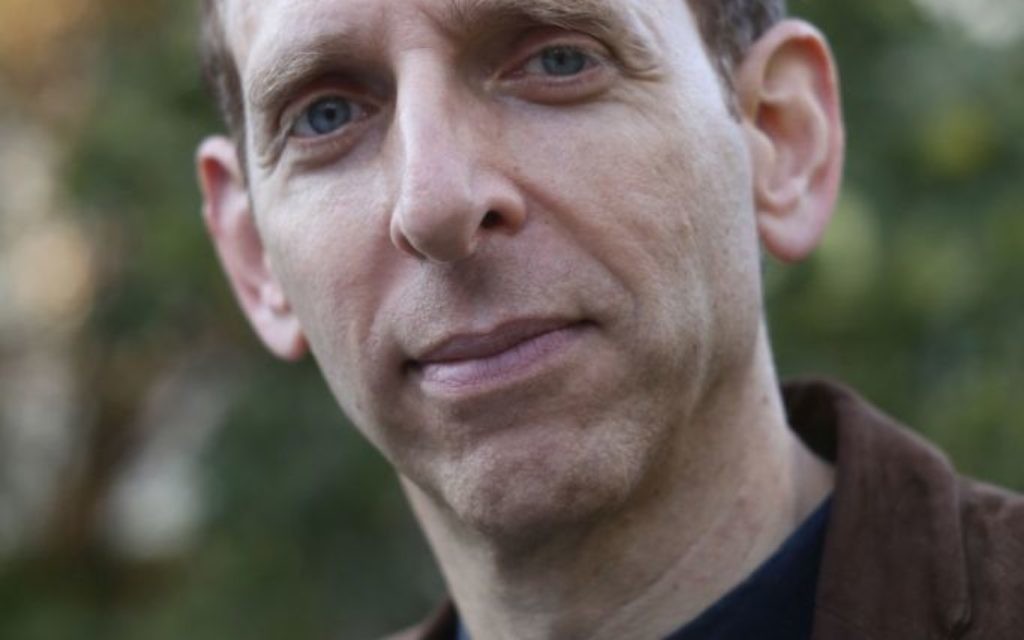2 Years, 3 Shots, 1 Shattered Dream
More than 100,000 people crowded Kings of Israel Square in Tel Aviv on the night of Saturday, Nov. 4, 1995.
A rally in support of the Oslo Accords between Israel and the Palestine Liberation Organization concluded with the singing of “Song of Peace” (“Shir Ha’Shalom”).
Prime Minister Yitzhak Rabin was walking to his car when 25-year-old Yigal Amir, a law student, former soldier and religious nationalist, approached and fired three shots from a 9mm Beretta pistol.
Get The AJT Newsletter by email and never miss our top stories Free Sign Up
Two struck Rabin. The third wounded a bodyguard. Rabin died shortly after arriving at Ichilov Hospital. In his chest pocket was a folded, bloodstained song sheet with the lyrics to “Song of Peace.”
Dan Ephron was in the square, covering the rally for the Reuters news service.
Needing to meet a deadline as the rally concluded, Ephron was walking to an apartment when he received a message on his beeper that shots had been fired in the vicinity of the prime minister.
Ephron, who later served as the Newsweek and Daily Beast bureau chief in Israel, has reconstructed the lives of Rabin and Amir over the two years leading up to that night in Tel Aviv in “Killing a King,” a new book on the assassination.
He will discuss the book at 3 p.m. Sunday, Nov. 15, at the Marcus Jewish Community Center as part of the JCC’s annual Book Festival. The format will be a conversation with his wife, Nancy Updike, who is a founding producer of National Public Radio’s “This American Life” and herself a veteran of Middle East reporting.
“That moment altered Israel’s trajectory. Israel today is not what Israel was then,” Ephron said in a C-SPAN interview in May (www.c-span.org/video/?326319-1/dan-ephron-killing-king). “It was a shock to the country, a trauma to the country, of course because of the assassination itself, but I would say doubly because the assassin was a fellow Israeli and a fellow Jew.”
The book’s two-year timeframe dates to Sept. 13, 1993, when Rabin shook hands with PLO Chairman Yasser Arafat during an Oslo Accords signing ceremony on the White House lawn.
Amir began planning the assassination the next day. He stalked Rabin for months. Video shot the night of the assassination showed Amir waiting near Rabin’s car.
In the C-SPAN interview, Ephron described Amir as “a real extremist, an extremist through and through. He was exceedingly religious. Every word for Yigal Amir of the Bible, of the Jewish Torah, was literal truth. He was exceedingly radical politically. The peace process that Rabin had started was for Amir a betrayal of Israel, a betrayal of Judaism.”
The title of the book comes from a phrase used in a letter by Amir’s brother, Haggai, who served a 17-year prison sentence as a conspirator.
Yigal Amir is serving a life sentence, plus 14 years for offenses related to the assassination.
Ephron wrote the book with cooperation from the Rabin and Amir families. Other sources shed light on how those charged with protecting the prime minister — even in an environment of open hostility from the Israeli right, including calls for Rabin’s death — could not envision the threat that emerged.
“The idea that a Palestinian might take a shot at a prime minister certainly was on the minds of Israelis who protected Rabin, but the idea that an Israeli or a fellow Jew would do that, even in this period of the peace process when there are threats against Rabin from the Israeli right, I think it’s very hard for the secret service people, for the bodyguards, to get out of the mindset that they’re looking for a Palestinian,” Ephron told C-SPAN.
In an email to the Atlanta Jewish Times, Ephron said that what surprised him most in his research related to the assassin himself.
“I was surprised to learn how smart Yigal Amir was. He wasn’t a crazed assassin. He didn’t come from the margins of society. He wasn’t a ruffian. But he was a real extremist,” Ephron wrote. “In some ways, it’s easier for a society to cope with an assassination when the assailant is deranged. It exempts people from having to ask themselves the tough question: How did an intelligent person who graduated from some of Israel’s finer institutions commit such a horrible act?”







comments